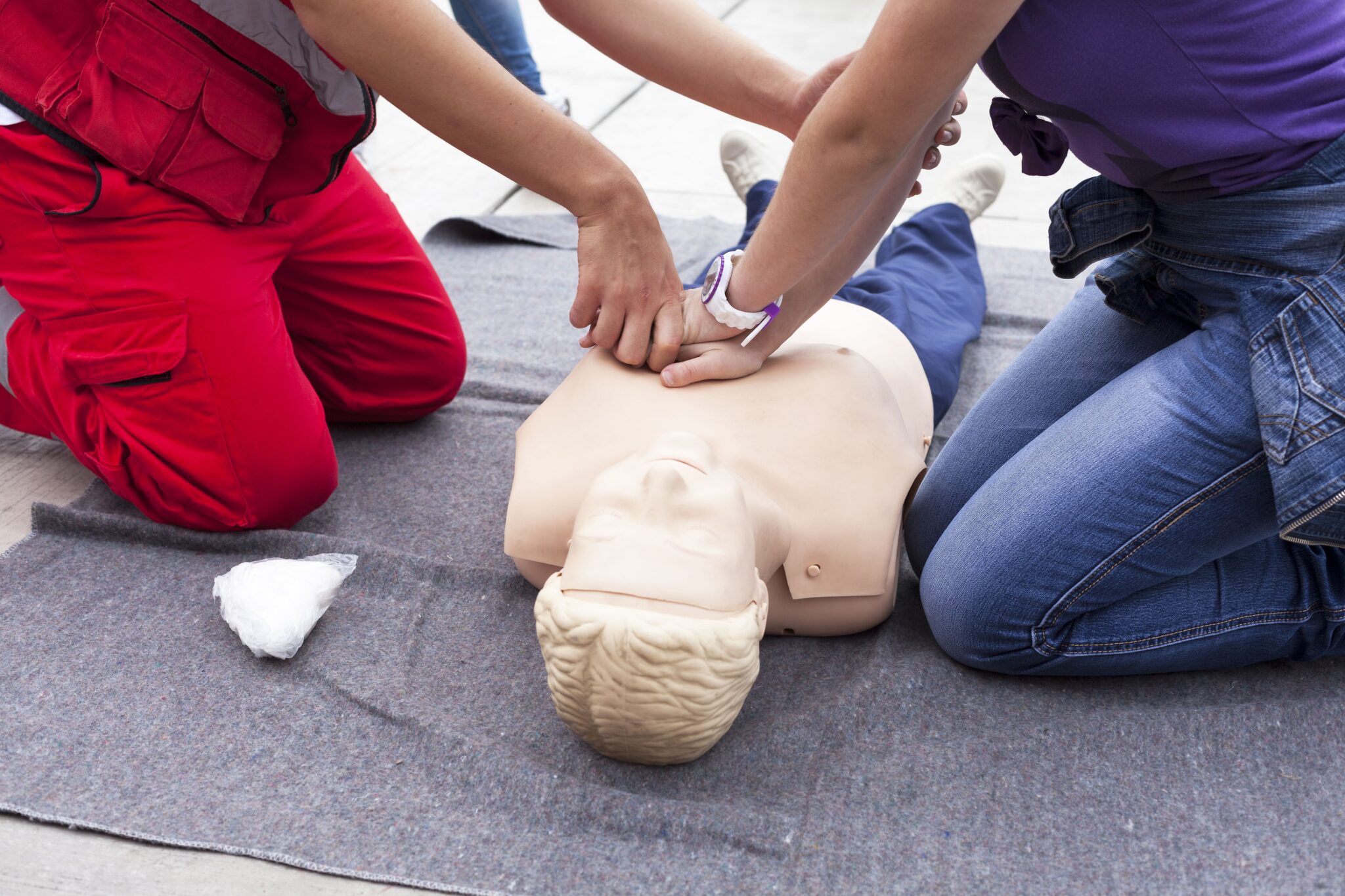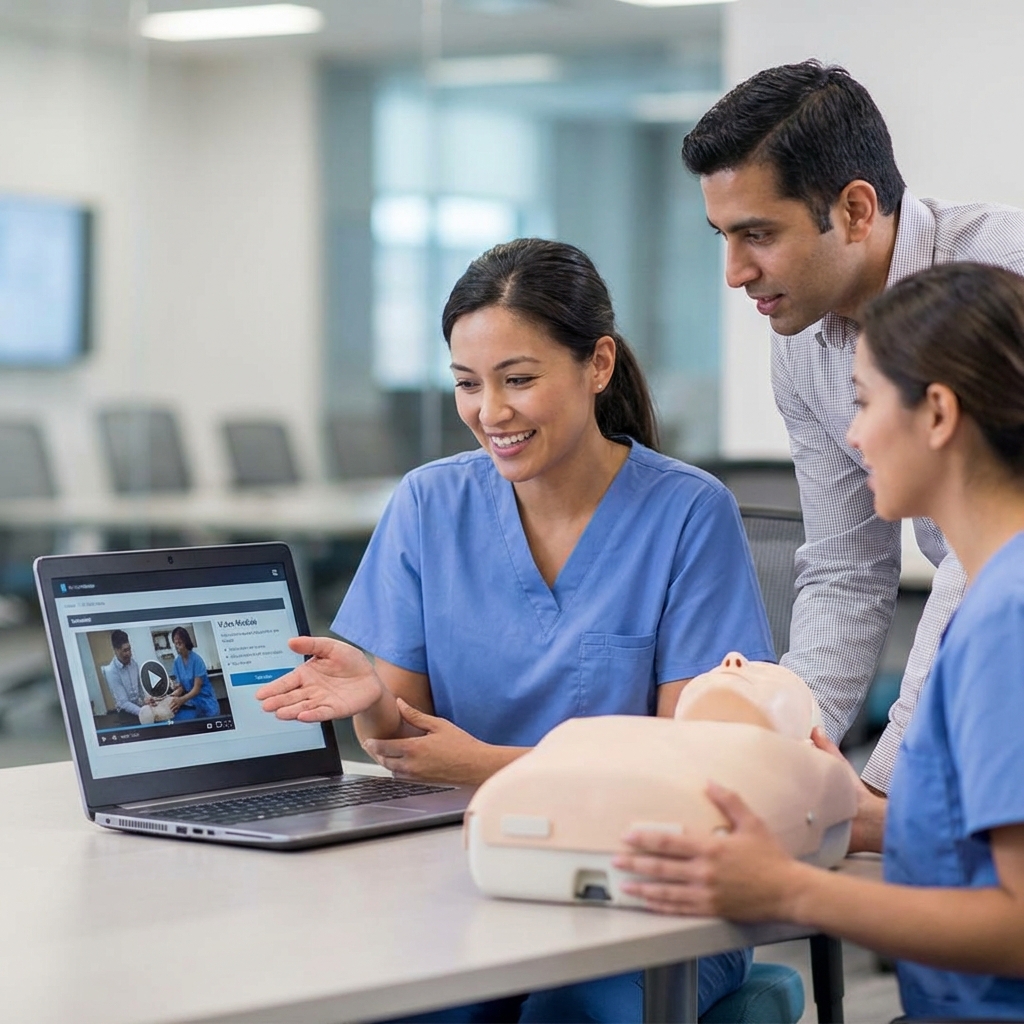Cardiac emergencies can strike without warning, and in those crucial moments, the difference between life and death often hinges on the presence of someone trained in Basic Life Support (BLS). Whether you are a healthcare professional or a concerned citizen, having valid CPR BLS certification ensures you can respond effectively in a life-threatening situation. However, CPR skills are perishable, and so is your certification. That’s why CPR BLS recertification is not just a regulatory requirement—it’s a commitment to maintaining the confidence and competence needed to save lives.
Why CPR BLS Recertification Is Essential
Life-Saving Skills Diminish Over Time
Studies show that CPR and BLS skills begin to decline within just a few months after initial training. This natural skill decay makes regular refreshers essential, especially for high-stress emergency situations where instinct and muscle memory are key. Regular recertification ensures that your technique remains accurate and that you’re prepared to perform under pressure.
Keeping Up with the Latest Guidelines
The American Heart Association (AHA) routinely updates its guidelines based on new research and clinical insights. CPR techniques that were once standard may now be outdated or even discouraged. Recertification courses ensure you are aligned with the most current protocols, maximizing the effectiveness of your interventions.
Meeting Professional Requirements
For many professionals—nurses, EMTs, firefighters, lifeguards, dental assistants, and others—BLS certification is not just recommended; it’s mandated by employers, licensing boards, and insurance providers. CPR BLS recertification helps you maintain compliance and avoid any interruptions in your work eligibility.
How Often Do You Need CPR BLS Recertification?
The American Heart Association requires BLS certification to be renewed every two years. Waiting too long can result in a lapse, requiring you to retake the full initial certification course rather than a shorter renewal session.
Some employers or state agencies may have even stricter guidelines, so it’s wise to monitor your certification expiration date and schedule your renewal in advance. Ideally, you should aim to recertify at least 30 days before your current certification expires.
What to Expect During a CPR BLS Recertification Course
Pre-Course Preparation
Although recertification classes are designed for those who already have a foundation in BLS, it’s beneficial to review your previous course materials or complete any pre-course assessments provided. This will help refresh your knowledge and prepare you for hands-on skills testing.
Core Components of the Recertification Course
- High-Quality Chest Compressions
- Proper hand placement
- Compression rate and depth
- Allowing full chest recoil
- Rescue Breaths and Airway Management
- Mouth-to-mask technique
- Use of bag-valve masks
- Jaw-thrust and head-tilt/chin-lift maneuvers
- Use of an AED (Automated External Defibrillator)
- Pad placement
- Analyzing rhythm
- Delivering shocks safely
- Team Dynamics
- Roles during multi-rescuer CPR
- Effective communication
- Closed-loop communication and task delegation
- Special Situations
- Choking
- Infant and child CPR variations
- BLS considerations in opioid overdose cases
- Skills Testing and Written Exam
- Hands-on assessment to ensure proficiency
- A multiple-choice test covering key knowledge areas
Recertification classes typically last 3 to 4 hours, shorter than the full certification course but equally comprehensive in terms of practical application.
Choosing the Right Provider for CPR BLS Recertification
Accreditation Matters
Always ensure your recertification course is taught by an AHA-certified training center. This guarantees that the instruction you receive meets the gold standard in emergency cardiovascular care.
Instructor Expertise
Choose a provider with experienced, credentialed instructors who can offer real-world insights, not just textbook knowledge. Their experience can provide context and confidence beyond what’s in the training manual.
Class Availability and Scheduling
Look for a training center that offers:
- Frequent course availability (including evenings and weekends)
- Multiple locations to reduce travel time
- Flexible scheduling options that fit into your routine
How to Prepare for CPR BLS Recertification
Check Your Current Certification Status
Locate your current AHA card and verify the expiration date. If you’re unsure or have misplaced it, some training centers can help verify your status if they issued your last card.
Schedule Early
Don’t wait until the last minute. Most reputable providers offer online booking tools that let you reserve your seat weeks in advance. This gives you more flexibility and helps avoid the stress of last-minute searching.
Review Course Materials
Brush up on the key concepts using:
- The AHA BLS Provider Manual
- Free online video refreshers
- Practice scenarios using a manikin, if available
Bring Required Items
On the day of your course, be sure to bring:
- A photo ID
- Proof of current (or recently expired) certification
- Any pre-course work or assignments
Online vs. In-Person CPR BLS Recertification
The AHA offers blended learning options, where the cognitive portion of the course is completed online and the hands-on skills session is conducted in person. This is ideal for busy professionals who need flexibility.
However, be cautious of non-AHA “online-only” certifications, which are often not accepted by employers or licensing agencies. Always verify that your course includes a hands-on evaluation conducted by a certified AHA instructor.
The Consequences of Letting Your Certification Expire
Allowing your CPR BLS certification to lapse can have significant consequences:
- You may be barred from working or performing certain clinical duties.
- You might have to retake the full certification course, which is longer and more expensive.
- In some cases, expired certification can even lead to liability issues during a medical emergency.
Being proactive about recertification preserves your professional standing and reinforces your commitment to being a dependable lifesaver.
Why Choose Safety Training Seminars?
If you’re searching for a reputable, accessible, and budget-friendly CPR BLS recertification course in Northern California, look no further than Safety Training Seminars.
Here’s why thousands trust us every year:
✔ Woman-Owned Business Serving Our Community
We take pride in being a woman-owned enterprise focused on improving health and safety in our communities across Northern California.
✔ Over 65 Convenient Locations
With locations throughout the region, there’s likely a class near you—whether you’re in San Francisco, Sacramento, San Jose, or anywhere in between.
✔ American Heart Association Certified
All of our CPR, BLS, ACLS, and PALS courses follow the strict standards set by the AHA, ensuring top-tier instruction and nationwide recognition.
✔ Flexible Scheduling—Even on Weekends
Our courses are available seven days a week, including Saturdays and Sundays. Morning, afternoon, and evening classes mean you can find a time that works with your lifestyle.
✔ Budget-Friendly Pricing with a Low-Price Guarantee
We understand that continuing education should be accessible. That’s why we back our courses with a low-price guarantee, ensuring you get the best training at the best value.
✔ Easy Online Registration
Our intuitive website makes it simple to browse classes, compare times, and book your recertification session in just a few clicks.
Recertify with Confidence
CPR BLS recertification is more than a checkbox on a professional to-do list. It’s a reaffirmation of your ability and willingness to act in someone’s darkest hour. Whether you’re a healthcare provider, a teacher, a coach, or a parent, staying up to date with your training could one day save a life, perhaps even someone you love.
Make your recertification count by choosing a provider that matches your values of excellence, accessibility, and affordability.
Ready to Renew Your Life-Saving Skills?
Join the thousands of professionals who trust Safety Training Seminars for their CPR BLS recertification. With convenient locations including San Francisco, Fresno and Sacramento locations, flexible schedules, and a low-price guarantee, maintaining your certification has never been easier—or more convenient.
Contact us today to find a class near you and reserve your spot. Be prepared. Stay certified. Save lives.









